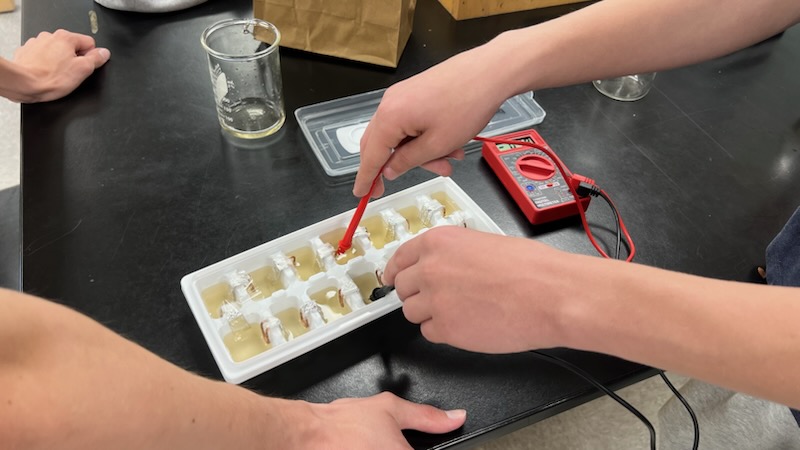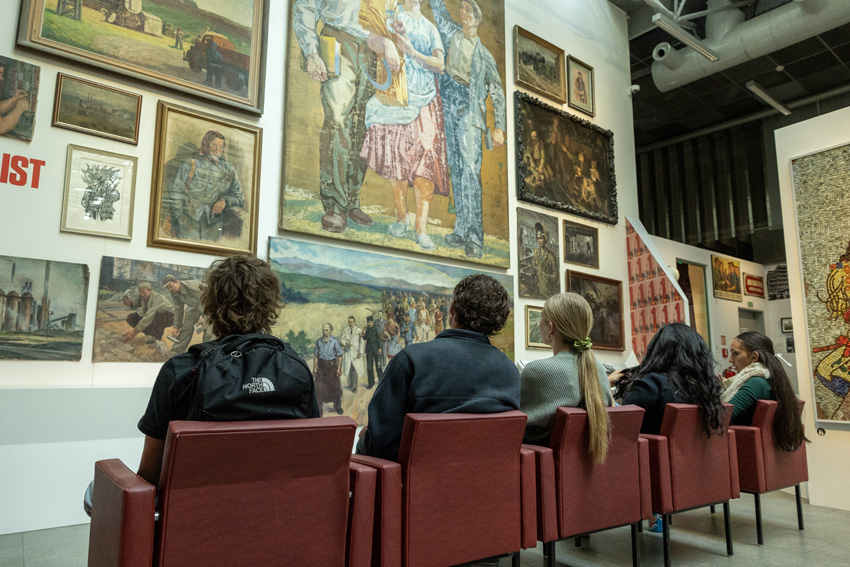Mounds of white waste sit with no hope of a future, destined to meet the same fate as the non recyclable trash that billows out of waste baskets on a daily basis and ultimately fills the dumpster. This, however, is not the nightmare of a diehard tree hugging liberal, but the reality of daily life on campus as hundreds of pounds of paper waste are squandered and treated with the same care non recyclable trash.
All California counties and cities are required to reduce their amount of landfill waste by 50% before 2005, as of 1990, when Assembly Bill 939 was signed into law. In order to meet these requirements, the city of Fresno has implemented many new practices
“We are doing a number of things to meet these requirements,” Sally Lopez, recycling coordinator of Fresno City, said. “Some of our most obvious efforts are drop off centers, buy back centers and our curb-side recycling center pick up.”
Aside from recycling centers and curbside pick up, the city offers large item garbage pick up and will soon provide large scale composting with the construction of a composting facility. The city also depends on the Fresno Unified schools to help reduce the amount of recyclable waste that is sent to the landfill.
“We are not actually given a specific percentage amount to recycle,” Lyn Peters, environmental service manager for the Fresno Unified School District, said, “but we still do make efforts to reduce our waste.”
To aid the city in reducing their solid waste, Fresno Unified recycles all its paper waste, including paper waste in the classrooms, in the offices and in the kitchen.
“I went to a public school and they would recycle every chance they got,” Josh Justin, ’03, said. “Here on campus it seems that we don’t recycle at all.”
Despite a possible reduction in their solid waste bill from a recycling audit that the city offers, no recycling opportunities are currently available to students or faculty on campus.
“I think we need to address the recycling issue. I used to recycle,” Yoko Kilbourne, high school secretary, said,” but I stopped because of the difficulty in getting the ?white trash’ in to an appropriate bin. There are plenty of chances for us to recycle things like paper and cardboard. It shouldn’t be difficult for either the church or the school to get a bin where we can throw recycled paper. If it turns out to be a hassle, then the city officials who are pushing recycling should be contacted.”
The computer lab alone produces nearly 10 lbs. of paper waste each day, according to David Martens, the campus technology director. This is simply one of the many classrooms on campus were recyclable material is wasted.
While in recent history there have been no recycling opportunities on campus, past classes have taken full advantage of their chances to recycle.
“They used to call me the recycling king,” Christopher Schultz, student activities director, said. “I had a free period after lunch and used to go around everyday and collect aluminum cans from the trash cans and crush them. Then I would turn in the crushed cans for date money.”
Much like this effort of the early 1990s, students on campus today are looking for opportunities to make an impact and start recycling programs.
“I think there is a real need for some kind of recycling program on campus,” Ashley Cook, ’04, one of the two organizers of a campus recycling drive, said. “They have had it in the past, and it’s about time we have it now. I hope to have a program up and running by the end of the month.”
For more information on recycling opportunities on campus please contact Cook through the high school office at 297-9464 or call Lopez at 498-4678.






